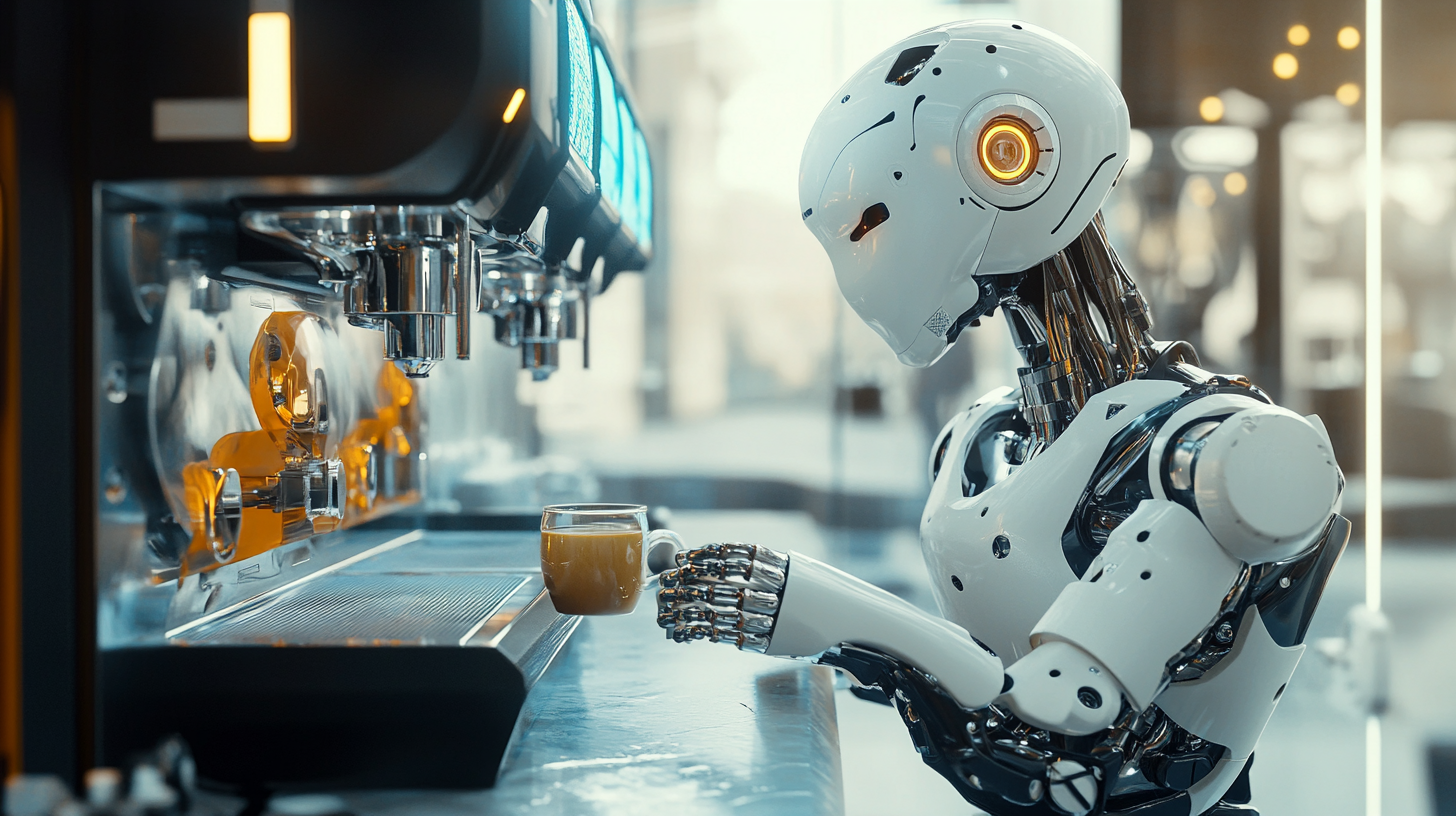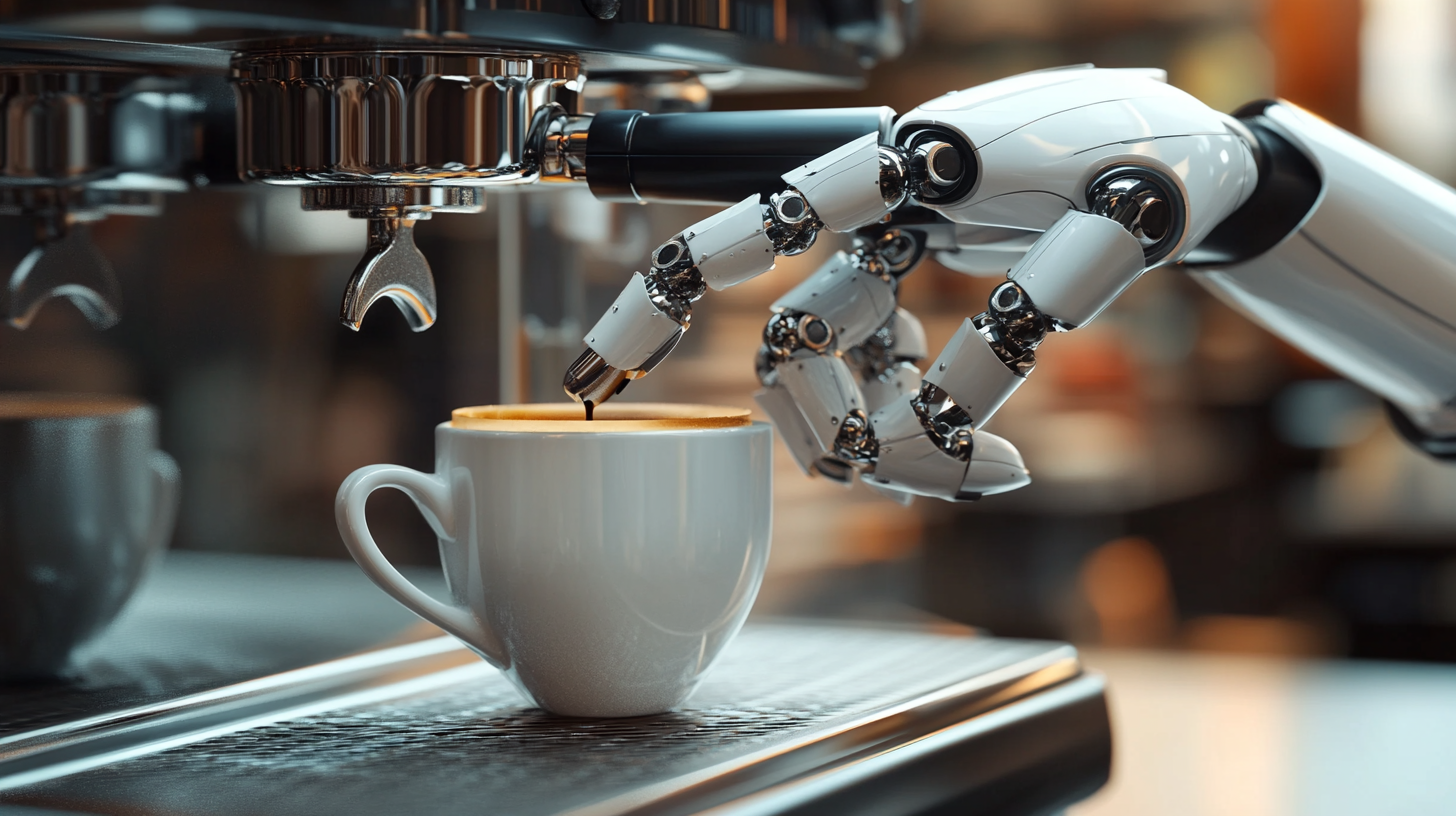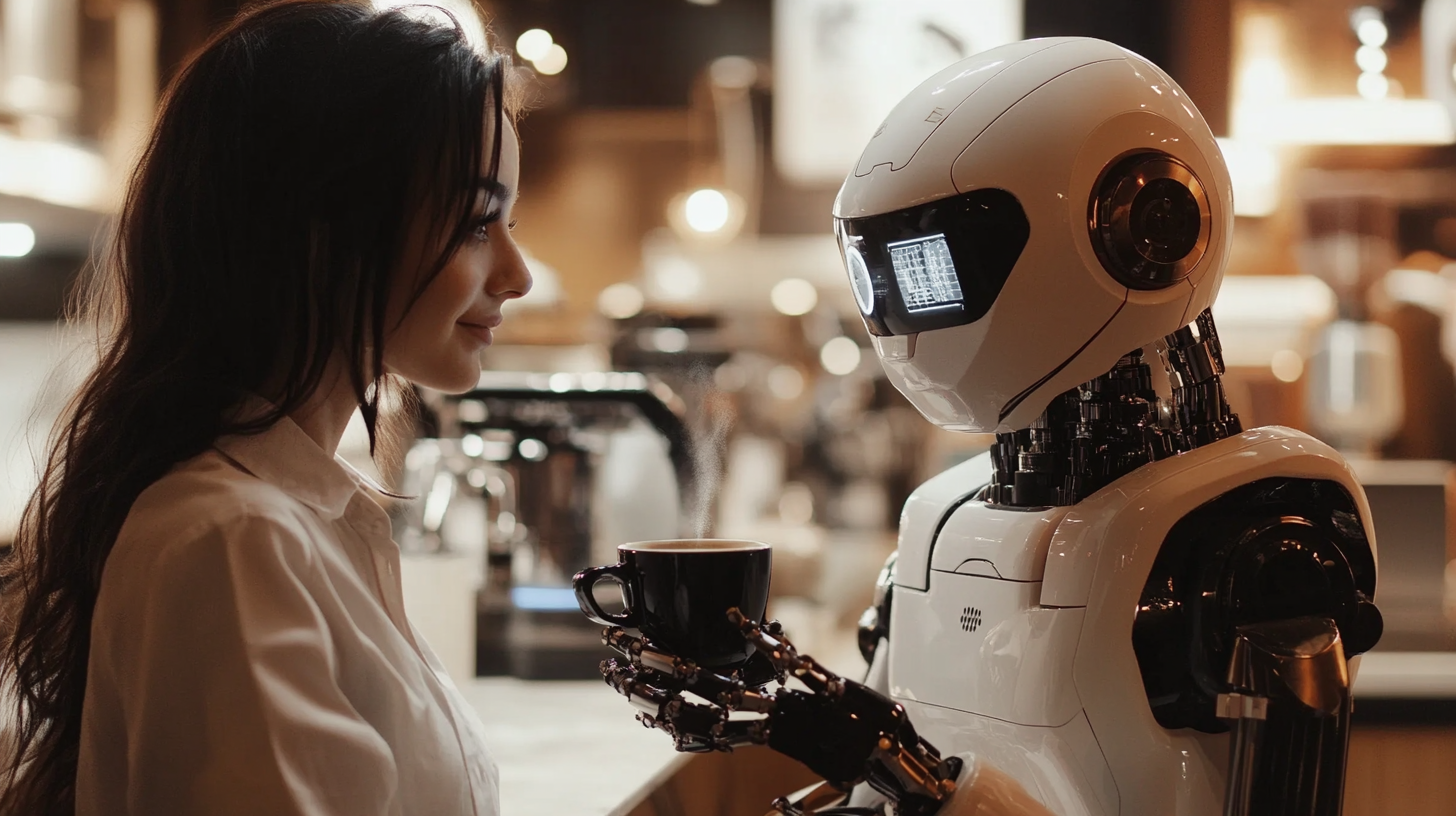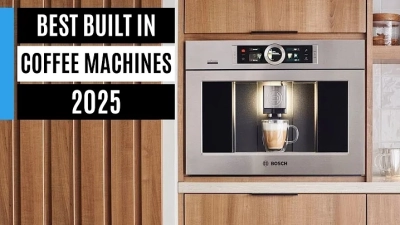5 Essential Insights for Global Buyers on Robot Coffee Barista Innovations
As the coffee industry continues to evolve, the integration of technology has paved the way for innovative solutions that enhance the consumer experience. One of the most exciting developments is the rise of the Robot Coffee Barista. According to a recent market report by Research and Markets, the global coffee robot market is projected to reach $2.8 billion by 2025, driven by demand for automation in the food and beverage sector. These advancements not only streamline operations but also cater to the increasing consumer preference for quick, high-quality coffee. Offering consistent flavor profiles and personalized service, Robot Coffee Baristas are revolutionizing how people enjoy their daily caffeine fix. In this blog, we will explore five essential insights for global buyers looking to invest in these cutting-edge innovations and how they can leverage this technology to stay ahead in a competitive market.

Emerging Technologies Shaping the Future of Robot Coffee Baristas
In recent years, the coffee industry has witnessed a remarkable transformation driven by emerging technologies that shape the role of robot coffee baristas. These innovations not only redefine the customer experience but also streamline operations in cafés and coffee shops. Advanced machine learning and artificial intelligence are at the forefront, allowing robots to understand customer preferences, adjust recipes in real-time, and consistently deliver high-quality beverages. With the integration of these technologies, baristas can focus more on creativity and customer engagement, leaving the repetitive tasks to their robotic counterparts.
Moreover, the use of Internet of Things (IoT) devices in coffee-making processes has enhanced connectivity and efficiency. Robot baristas are now equipped with smart sensors and connectivity features that enable them to monitor ingredients, manage inventory, and even predict maintenance needs. This proactive approach minimizes downtime and optimizes workflow, making business operations more sustainable and profitable. As these innovations continue to evolve, they pave the way for a future where technology and human interaction coexist harmoniously in the quest for the perfect cup of coffee.

Key Features to Look for in Automated Coffee Machines
As the world of coffee continues to evolve, automation stands at the forefront, redefining the barista experience for global buyers. With the recent introduction of groundbreaking products in the Chinese market, it’s crucial to understand the key features that buyers should seek in automated coffee machines.
First and foremost, precision and consistency are essential. Automated machines should offer advanced brewing technology that ensures each cup is perfected to the desired taste profile. Features like programmable settings allow for customization, catering to varying preferences while maintaining quality across high-volume operations. Additionally, robust milk frothing systems are vital for creating a range of beverages, from lattes to cappuccinos, enhancing customer satisfaction.
Another significant aspect is ease of use and maintenance. Machines equipped with user-friendly interfaces and intuitive controls simplify operations, making them accessible for staff of all skill levels. Furthermore, a design that facilitates easy cleaning and maintenance can save time and increase efficiency in busy environments. By focusing on these essential features, buyers can leverage the latest innovations in automated coffee machines to elevate their offerings and meet the growing demands of coffee lovers.

The Impact of AI on Coffee Brewing Quality and Customization
As the coffee industry continues to evolve, the integration of artificial intelligence (AI) in robot coffee baristas is revolutionizing the way coffee is brewed and customized. In 2023, the global market for home coffee grinders reached a staggering $9.951 billion, with projections estimating it will grow to $16.09 billion by 2032, reflecting a compound annual growth rate of 5.5%. This uptick underscores the escalating consumer demand for high-quality, personalized coffee experiences facilitated by technological advancements.
AI-driven coffee baristas enhance brewing quality by employing precise algorithms that analyze numerous factors, such as bean type, grind size, and brewing time. This level of customization allows for a tailored coffee experience that can cater to individual preferences, ensuring that every cup is made to perfection. Additionally, these innovations enable baristas to maintain consistency across multiple servings, thus improving quality control in both domestic and commercial settings. As global buyers look to invest in coffee technology, understanding the impact of AI on the brewing process is essential for making informed purchasing decisions in a rapidly changing marketplace.
Market Trends: How Robot Baristas Are Revolutionizing the Coffee Industry
In recent years, the coffee industry has experienced a remarkable transformation, largely driven by advancements in robotics and automation. The emergence of robot baristas is not merely a novelty; it's a significant shift that enhances efficiency while meeting the increasing demand for quality coffee. These innovations allow for precise coffee brewing techniques, ensuring consistency and reducing the chances of human error. Moreover, with the ability to serve customers at a rapid pace, robot baristas cater to the growing trend of on-the-go coffee consumption, making them an appealing option for busy urban environments.
Market trends indicate that consumers are becoming more receptive to automated services, especially in industries focused on convenience and quality. The integration of robot baristas in coffee shops is a response to this evolving consumer behavior. Not only do these robots offer a unique and engaging customer experience, but they also highlight a commitment to sustainability by minimizing waste and optimizing ingredient usage. As brands seek to differentiate themselves in a competitive market, embracing technology like robot baristas will be crucial for attracting and retaining customers who value both innovation and exceptional service.
Market Share of Robot Baristas by Brand (2023)
This pie chart illustrates the market share of various robot coffee barista brands in 2023, highlighting the increasing popularity and diversity of robotic solutions in the coffee industry.
Investment Considerations for Buyers: Cost vs. Innovation in Coffee Automation
In the rapidly evolving realm of coffee automation, global buyers are faced with the dual challenge of weighing investment considerations against the backdrop of innovation. As robot coffee barista technology advances, the initial costs may seem daunting; however, the long-term benefits often outweigh these upfront expenditures. Buyers must assess not only the financial implications but also the unique value that these innovative machines bring to their establishments. By enhancing operational efficiency and delivering a consistent product, robotic baristas can significantly improve customer satisfaction and loyalty.
Moreover, it is crucial for buyers to consider the broader market trends in coffee consumption and consumer preferences. As patrons seek personalized and high-quality coffee experiences, investing in cutting-edge technology can position businesses favorably within a competitive landscape. Potential cost savings from reduced labor expenses and increased throughput should also be factored into the decision-making process. Ultimately, while the price tag of robot baristas may be high, the potential for innovation-driven growth presents a compelling case for investment in this technology.
Insights on Robot Coffee Barista Innovations
This chart displays the investment considerations between cost and innovation in coffee automation technologies.
 -->
-->


